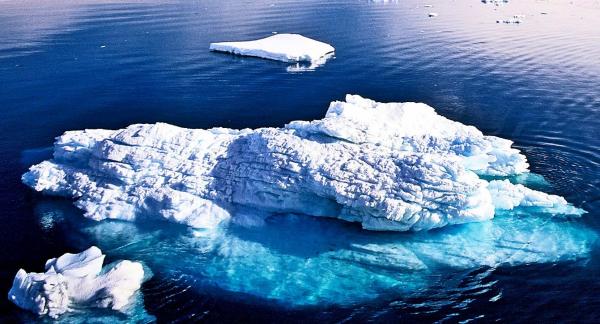Antarctic ice melt could slow ocean currents by up to 40% in three decades
3 Apr 2023 by The Water Diplomat

In an article published in Nature on the 29th of March, researchers have announced that new modelling shows that more rapid melting of ice in the Antarctic could lead to a substantial slowdown in water circulation in the deeper waters of the oceans. They predict that the deep ocean currents could be slowed by as much as 40% over the next three decades if the effects of melting ice is factored in to current climate models. The study assumed for the purposes of their study that the existing greenhouse gas emissions scenario would remain unchanged. The speed of the current transition in deep water temperatures and circulation is historically unprecedented, as changes in deep ocean currents have taken thousands of years to manifest in the past. Roughly 80% of the imbalance in global heat circulation caused by greenhouse gas emissions is absorbed by the oceans.
The research focused on the speed of ‘abyssal ocean overturning’, or the slow circulation of deep ocean waters that is part of global ocean currents. These currents have an impact on the circulation of heat, carbon, oxygen and nutrients in the ocean and therefore affect global weather patterns, ocean acidity, oxygen content and the food chain. Cold waters around Antarctica slowly descend to the ocean floor, contributing to a mass of water known as ‘Antarctic Bottom Water’. It has been shown that recently, the amount of water in this body has been decreasing
Research from 2010 had already shown that warming was taking place in the southern abysses of the oceans, contributing to global sea level rise.
